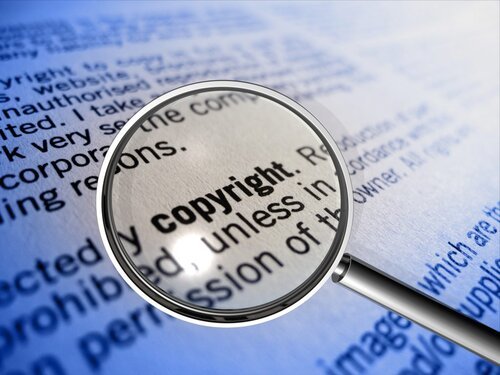If You've Ever Downloaded an Image From Google? You Need to Read This.
It’s common these days for businesses to have photography requirements for a whole range of reasons. No matter who your customers or clients are or what you are selling, high-quality photography is an important asset that will contribute to your overall branding and success. Be sure to understand Australian copyright laws.
Consumers like to see things for themselves before making a decision about a purchase. The internet has made this increasingly possible, which means photos and videos of your products, business and offerings are more valuable than ever before.
Some of the areas in which a business might need professional photography include:
Headshots + Team members
Premises
Products + Services
Team Events
Your website
Social Media
Email communication
There are also many other ways to obtain professional imagery.
You can purchase Stock Photos from services like Shutter and Adobe Stock Photos. You can download images for free on sites like Unsplash under a “creative commons license’. You might have an employee with a good eye or you can engage a professional photographer to take photos for you.
With the increase of the “gig economy” services like Snappr have also come into the mix where you can, with the click of a mouse, have a photographer come to your business and take commissioned photos.
This is all great from an end-user point of view - quick, fast access to photography, but what does it mean legally?
Who owns the photos, what rights do you have to use them and how to make sure that you don’t end up getting caught out?
What Does Copyright Actually Mean?
In simple terms, copyright means ownership of the works.
For photographers, that means ownership of the photo, and ownership means, exclusive rights to that property such as:
Ability to reproduce the photograph/s
To distribute copies of the photograph or publish them
To display the photograph to the public - such as via a website, email or printed material
Copyright protection is free and occurs the instant the photo is taken, but it is important to understand that just because you have commissioned a photographer to take photos, it doesn’t mean the copyright transfers to you. It can stay with the photographer!
What is Commissioned Photography?
Commissioned photography is when you engage someone to take photos for you. The circumstances in which the photo is taken will determine who is the first owner of the copyright.
The general rule is that the photographer owns the copyright for any photo they have taken - regardless of whether you have commissioned it or not.
General rules however are often accompanied by exceptions. If, for example, an employee takes a photo in the course of their employment, then the copyright vests in the employer.
If the photo was taken for private or domestic purposes, then copyright vests in the client.
If they are taken for commercial purposes, the photographer will be the first owner of the copyright, unless the photographer and client agree otherwise.
You can see how things can get very messy, very quickly!
You can (and should!) overcome this by entering into a written agreement that clearly sets out ownership rights by assigning the copyright or creating a license to use the photograph.
How Can Copyright Be Assigned?
Copyright owners can assign their rights in copyright material by entering into a contract often referred to as a Release or Deed of Assignment.
Copyright owners can assign (sell) their rights, with or without limitations, and with or without conditions (such as payment).
Assignments must be in writing and signed by, the copyright owner, to be fully effective.
Where copyright is assigned, the person to whom the copyright is transferred becomes the new copyright owner.
What is Licensing?
A license agreement is a legal contract where the owner of a photo permits a third party (grants a license) to use the image.
The distinction is, in a license agreement, the owner of the photograph is not transferring ownership of their copyright.
Most online sites where you can obtain photography such as Shutter or Unsplash grant you a license to use the photograph. This means the photographer is allowing you to use their work (either with a fee or not) but they retain the copyright.
A ‘Creative Commons license’ is created when the author or owner of copyright material permits, or grants a license to third parties to use their works for free.
It is important to note that Creative Commons material often has limitations! For example, you may be permitted to use an image provided you credit the photographer, or it may specifically state that you may use the image for personal purposes only i.e. not on a business website.
Always check the license conditions, and when in doubt - contact the author!
How Can I Avoid Falling into Any Traps?
Get it in writing. An agreement protects both the copyright holder and the person who wishes to publish or use the image.
A Release or Copyright Assignment should clearly define the works, set out consideration (payment) and define any restrictions.
A license agreement should very clearly state who the owner of the copyright material is and define the terms of the license. In particular, it should define how and where the image can be used or published, and whether the licensee can manipulate, copy, sell, distribute or otherwise deal with the image.
If there is no Agreement in place then there is nothing to fall back on if something goes awry.
We are able to draft a standard agreement setting out the rights granted, and other terms and conditions, covering most or all of the commissions you normally undertake.
QUESTIONS?
Contact us if you would like to have more information. Our lawyers at You Legal will be happy to assist you in whatever way we can.


